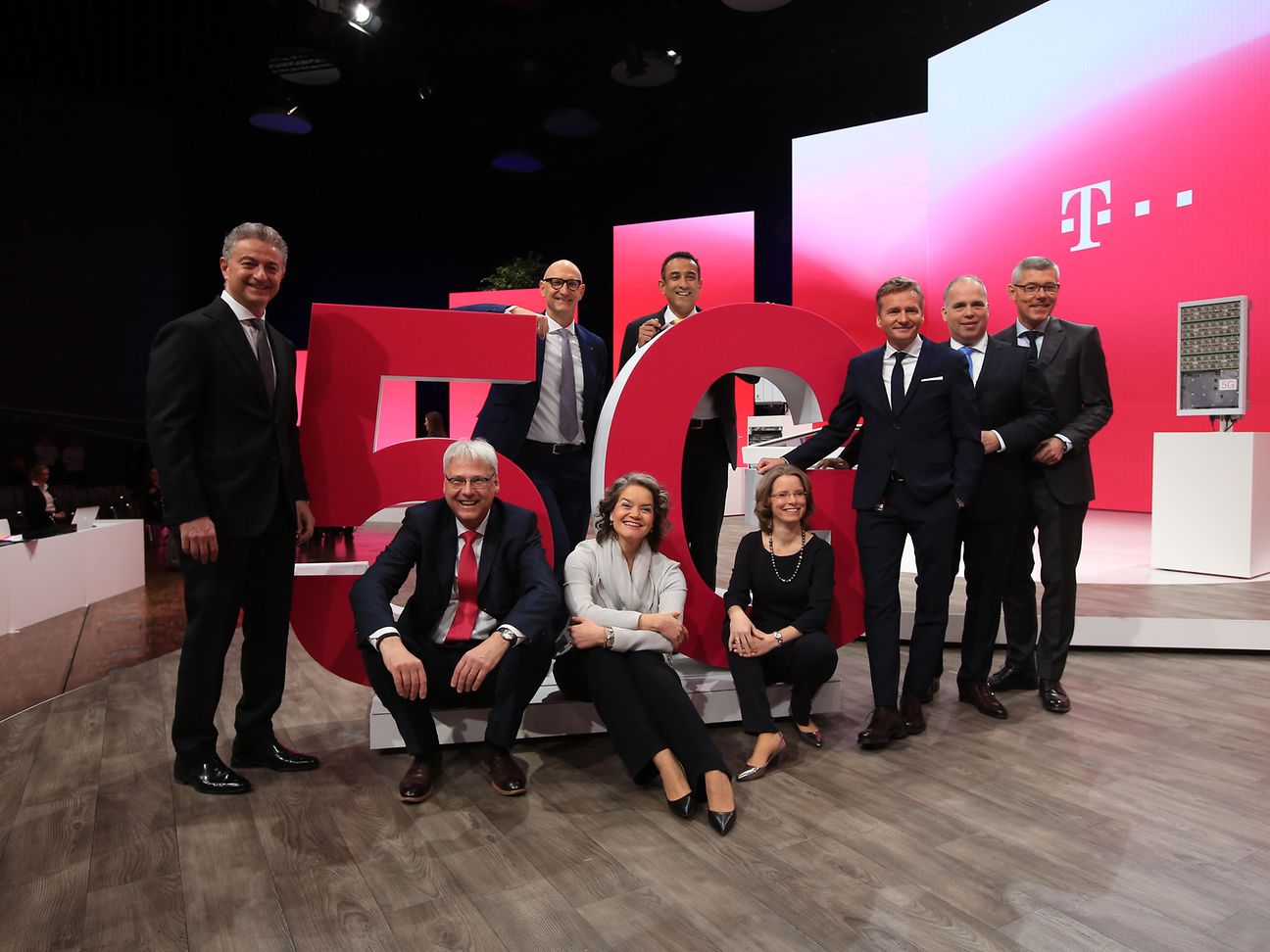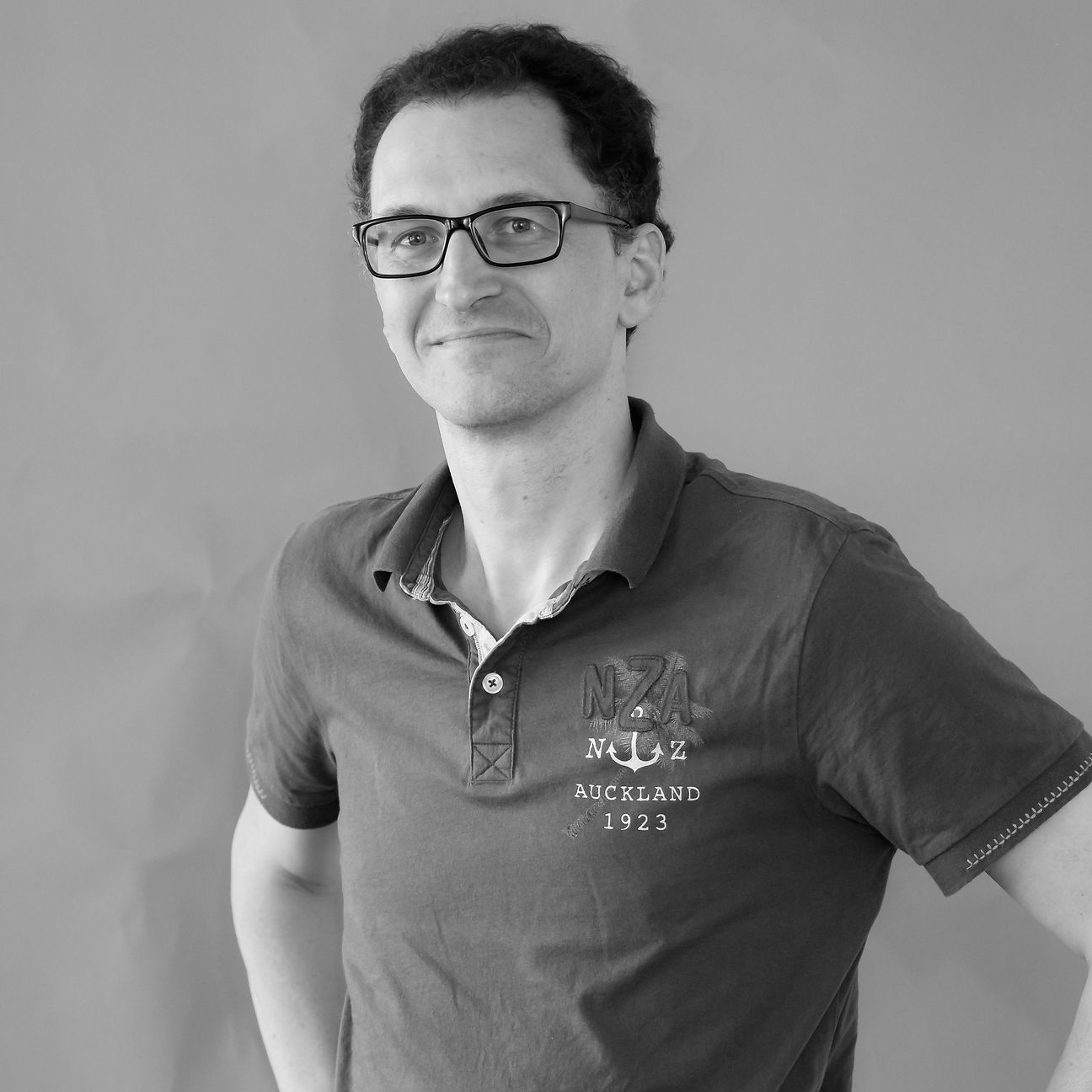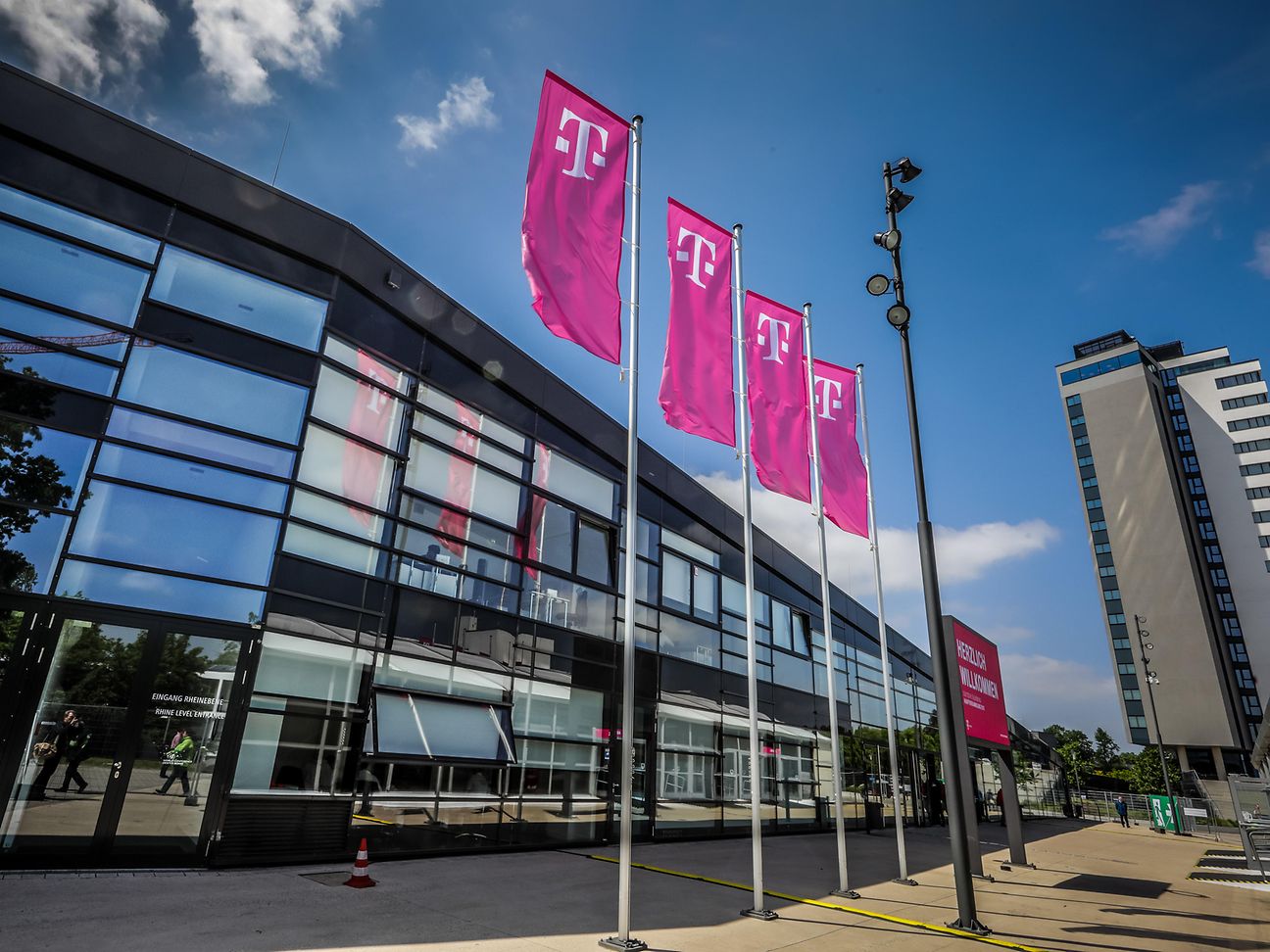

- CEO Tim Höttges underlines importance of network build-out and customer focus and argues for planned merger in the United States
- CEO for a different attitude for Deutsche Telekom: “New times call for new answers. We are cooperating. In mobile communications and in the fixed network.”
- Dividend set to rise from 65 eurocents to 70 eurocents per share, an increase of 40 percent in four years
Deutsche Telekom is strongly committed to sharing and participation. That is the central message from CEO Tim Höttges at the Group's shareholders’ meeting in Bonn. It is the company’s job and deeper purpose to enable both of these things. “Participation in the possibilities offered by the internet. Participation in the opportunities of digitalization. Participation in new wealth. In short: taking part. That is what we are working for.” That is why Deutsche Telekom faces problems head on and stays close to its customers. It is strengthening its subsidiaries and associates in a number of countries and investing massively in the future.
“We need broadband for the many, not for the few"
For Deutsche Telekom, one of the prerequisites for participation is being connected. Hence, the company has invested in networks in particular over the last few years. A total of 46 billion euros has been invested since 2014. 21 billion of this in Germany. Both figures exclude the costs of acquiring spectrum.
In accordance with the company’s own expectations, Deutsche Telekom’s build-out strategy is also designed with participation in mind. “We need broadband for the many, not for the few. And that is exactly how we build our network,” said Höttges. When it comes to participation: “Only mass is first class.” At present, around 33 million households can get a fiber-optic-based internet access from Deutsche Telekom (FTTC). Almost 20 million of these households can get speeds of up to 250 Mbit/s. The next step is to accelerate the build-out of fiber to the home (FTTH).
Optical fiber is becoming ever more important
Industry as a whole is facing a major change, stressed Höttges. Mobile communications are entering the 5G era. In the fixed network, optical fiber is becoming ever more important. “New times call for new answers,” said Höttges. He added that cooperations with competitors were now a fixed component of the build-out strategy. “A player with a market share of 40 percent cannot build all of the new networks.”
In mobile communications, Deutsche Telekom also allows its competitors to share use of the majority of its cell sites. “We build the mast, and others can use it to mount their antennas. Particularly in rural areas, where coverage gaps are still large.” Höttges also expressed an openness to discussions with mobile competitors about closing further gaps. In the fixed network, he referred, among other things, to the establishment of the joint venture with the provider EWE, announced just a few days ago. 1.5 million households in north Germany are to be supplied with FTTH under the name Glasfaser NordWest.
At the same time, Höttges advocated for “fair and market-oriented solutions.” Maximum investment and maximum regulation just do not go together, he claimed. In addition, new answers also need to be found in other areas. According to Höttges, at two years or more, the approval time for cell sites in Germany is too long. Deutsche Telekom also believes access regulation for new fiber-optic networks to be counterproductive, since it devalues investments. On the subject of 5G, Höttges criticized the fact that a quarter of the available spectrum is not even being auctioned. “An artificial shortage of public resources is being created, which may push up the price. In the end, there is no money for the build-out.”
The number of complaints had dropped by 25 percent in 2018
But in addition to connecting people, participation also means maintaining a dialog with them – online, as well as in the Telekom shops or call centers. On a positive note, customer service had improved again over the last few years. The number of complaints had dropped by 25 percent in 2018.
Höttges also said there is a need to listen to “the younger generation.” At the moment, they are asking: “Are you building or obstructing our future?” Certainly, digital applications help to save CO2 emissions overall, but with energy-intensive data centers, Deutsche Telekom is also “part of the problem” in climate change. That is why the company has decided that, from 2021, the network will be run exclusively on renewable energy. By 2030, the company’s carbon footprint should be cut by 90 percent in total.
Höttges also sees another change in attitude in the treatment of customers. Deutsche Telekom wants to address the unequal treatment of new and existing customers: “Many customers are loyal to us for years. But they do not get the same offers as new customers. Do not get the same discounts. We are changing this, step by step. Our current offering is the same for everyone. Loyal customers and new customers.”
The 2018 financial year was a “record year” for Deutsche Telekom
Höttges also argued for the planned merger of T-Mobile US with its competitor Sprint: “The business combination is good – for competition in America, for customers, for more jobs.” Among other things, together, the two companies can build a 5G network faster.
Overall, the 2018 financial year was a “record year” for Deutsche Telekom. The Group recorded revenue growth of 0.9 percent to 75.7 billion euros. Adjusted EBITDA rose 5.0 percent year-on-year to 23.3 billion euros. Free cash flow increased by 13.7 percent to 6.2 billion euros.
Shareholders should participate in this positive trend. The Supervisory Board and the Board of Management are proposing to the shareholders' meeting a dividend of 70 eurocents per share. In the prior year, the dividend was 65 eurocents per share. The proposed increase would mean dividend growth of 40 percent over the last four years.
Deutsche Telekom expects growth to continue
Tim Höttges referred to the Group’s medium-term outlook, which expects further growth. The dividend is also expected to continue increasing until 2021. But the measure for this will not be free cash flow as hitherto. “The focus will be on the profit generated by our company. The dividend will be aligned with adjusted earnings per share, which currently stand at 96 cents. This figure is projected to rise to 1.20 euros by 2021, an increase of 20 percent.” If Sprint is successfully taken over in the United States, there will be start-up costs. In such an event, the dividend is secured at a minimum value of 50 eurocents per share.
Höttges said that the guidance shows that Deutsche Telekom expects growth to continue. After all, “Deutsche Telekom itself must be successful if it is to successfully enable participation.”
This media information contains forward-looking statements that reflect the current views of Deutsche Telekom management with respect to future events. They are generally identified by the words "expect", "anticipate", "believe", "intend", "estimate", "aim", "goal", "plan", "will", "seek", "outlook", or similar expressions and include generally any information that relates to expectations or targets for revenue, adjusted EBITDA, or other performance measures. Forward-looking statements are based on current plans, estimates, and projections, and should therefore be considered with caution. Such statements are subject to risks and uncertainties, most of which are difficult to predict and are generally beyond Deutsche Telekom's control. They include, for instance, the progress of Deutsche Telekom's staff-related restructuring measures and the impact of other significant strategic or business initiatives, including acquisitions, dispositions, and business combinations. In addition, movements in exchange rates and interest rates, regulatory rulings, stronger than expected competition, technological change, litigation, and regulatory developments, among other factors, may have a material adverse effect on costs and revenue development. If these or other risks and uncertainties materialize, or if the assumptions underlying any of these statements prove incorrect, Deutsche Telekom's actual results may be materially different from those expressed or implied by such statements. Deutsche Telekom can offer no assurance that its expectations or targets will be achieved. Without prejudice to existing obligations under capital market law, Deutsche Telekom does not assume any obligation to update forward-looking statements to account for new information or future events or anything else. In addition to figures prepared in accordance with IFRS, Deutsche Telekom presents alternative performance measures, e.g., EBITDA, EBITDA AL, EBITDA margin, adjusted EBITDA, adjusted EBITDA AL, adjusted EBITDA margin, adjusted EBIT, adjusted EBIT margin, adjusted net profit/loss, free cash flow, free cash flow AL, gross debt, and net debt. These measures should be considered in addition to, but not as a substitute for, the information prepared in accordance with IFRS. Alternative performance measures are not subject to IFRS or any other generally accepted accounting principles. Other companies may define these terms in different ways.
About Deutsche Telekom: Deutsche Telekom at a glance


